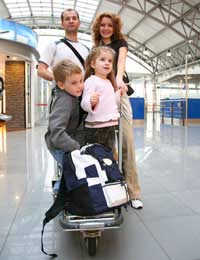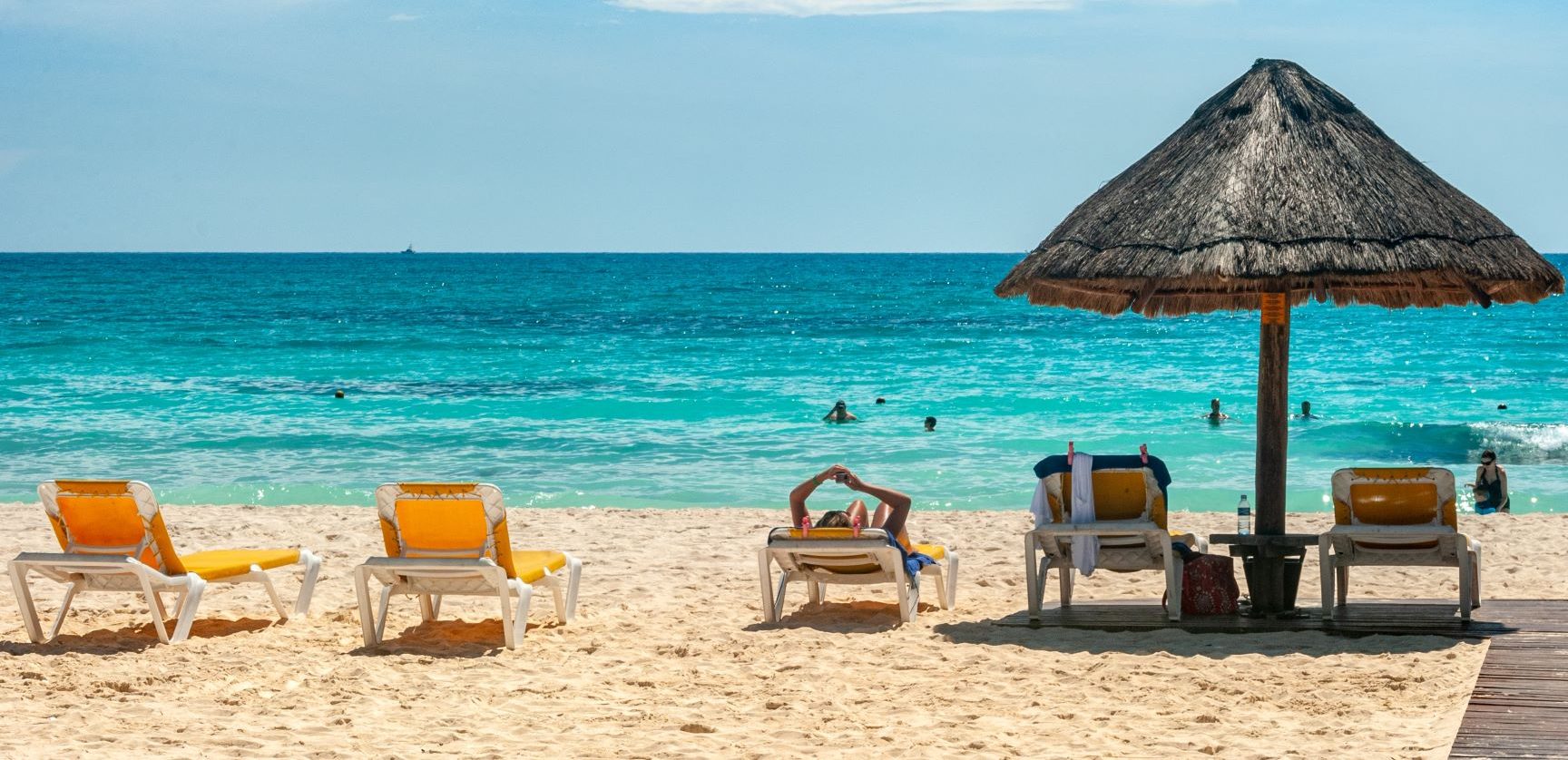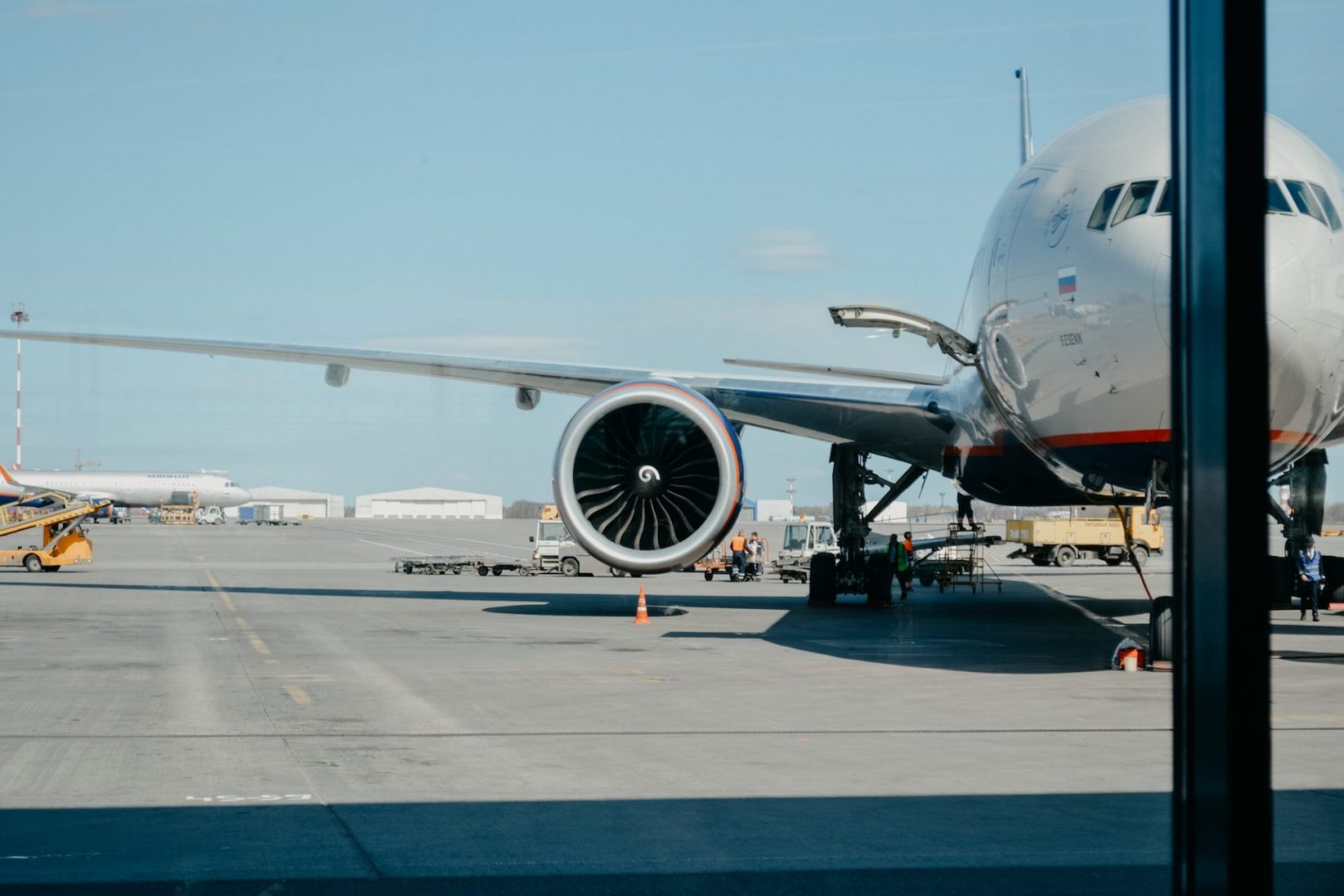The Package Travel Regulations 1992


When you're booking a holiday, you'll probably hear about the Package Travel Regulations - so what are they and how can they help you?
In the UK, anyone who sells package holidays has to comply with the Package Travel Regulations 1992. The Regulations were brought in to set out tour operators' (and other travel organisers') responsibilities, and what consumers can do if they have a problem.
These rules have been put into place in the UK to implement a European Directive which affects all member states, so if your holiday is booked in Europe, you should be covered by the Regulations. UK Regulations don't apply to packages sold in other countries by operators established in the UK.

What is a Package Holiday?
- transport (such as flights, transfers etc)
- accommodation
- another tourist service which makes up a significant proportion of the package.
To be a package holiday, it also has to last for more than 24 hours, or at the very least include overnight accommodation as part of the trip. As an example, a day-trip to a tourist attraction in the UK which includes entry and travel to the attraction wouldn't count.
The package also has to be sold as one - If travel and accommodation (for example) are paid for separately, it's not a package holiday.
What Do The Regulations Mean for Me?
Brochures - although there's no legal requirement for an agent or tour operator to provide brochures, if they do, the brochure needs to contain information about:
- the destination and how you'll get there
- full details of the accommodation, where it is, its rating and main features
- which meals which are included
- any itinerary
- basic information about passport, visa and health requirements
- when and how much you have to pay
- minimum traveller requirements if necessary
- deadline for informing customers in the event of cancellation
- arrangements covering inward and outward delays
- how consumers' money is protected and how they'll get home if the operator goes out of business.
Contracts Under The Package Holiday Regulations
If you have any special requirements such as non-smoking rooms, no children, accommodation for pets, and the tour operator has confirmed this will be acceptable, the arrangements should be included in the contract too.
If the operator changes the contract, you can either agree to the amendments, or you can decide to cancel the holiday without penalty. So you should receive a full refund of whatever you've paid to date. A surcharge can only be added if it is due to changes in transport costs, taxes or fees for certain services, and exchange rates.
The Package Travel Regulations are really there to make sure that you know exactly what you're getting when you book a holiday, and to ensure that you aren't unfairly treated by a tour operator adding charges or making changes to your holiday.

- Contact Support
- Returning Customer?
- Sign in to your account
- Contact support
- New Zealand
- South Africa
Package Travel Regulations 1992: a short explanation for industry professionals

What is a package holiday?
Application of the regulations, changing the contract, further obligations once the customer has gone on holiday, related agreements.
In the UK, anyone who more than occasionally sells or offers package holidays for sale must comply with the Package Travel, Package Holidays and Package Tours Regulations 1992 .
The Regulations set out the responsibilities of a travel organiser to his customers and the remedies available should there be a breach.
A 'package' is defined in section 2(1) of the Regulations as a combination of at least two of the three following components of a holiday:
- accommodation
- other services for tourists that make up a significant proportion of the package
A package must extend over 24 hours or more, or include overnight accommodation. If you simply organise day trips that include entry to an attraction and transport, the Regulations will not apply.
Lastly, a package must be sold at an inclusive price, i.e. the components should be bought together. However, separating out the items on multiple invoices only to escape the Regulations is not a way of getting round them.
Examples of packages:
- a 'murder mystery' themed weekend at a country house
- a holiday including accommodation, flights and day trips
- a skippered yacht tour through the Whitsunday's
- fly-drive holidays
Examples that are not packages:
- day trips that include entry into a stately home and transport there and back
- a holiday for the members of a club (who have already decided to go on holiday), to which you belong
- letting out a holiday home that belongs to you or a friend
- a special Christmas entertainment package for all the guests at your hotel
The rules apply to those who put together and offer holidays for sale in the course of business - most likely tour operators and travel agents.
If you organise a holiday on behalf of friends or members of your sports club, the regulations do not apply.
The regulations do not define "occasionally", however, it is thought to mean regularly, even if this is infrequently. To be prudent, you should assume the Regulations apply.
The rules have been established to implement a European Directive that binds all EU member states and similar provisions apply universally in those other countries.
However, the UK regulations do not apply to packages sold in other EU countries by operators established in the UK. Those countries have their own specific regulations to implement the Directive.
You do not have to provide your customers with a brochure. If you do, it must contain specific information.
If you do not provide what you say is offered in the brochure then customers can sue you for damages. These damages could be for financial loss or for “loss of amenity”. Amenity means collectively all the aspects of lost pleasure and disappointment.
The brochure must provide information about:
- the destination and the means, characteristics and categories of transport
- the type of accommodation - it's location, category or degree of comfort, it's main features and it's tourist classification under the rules of the country it is in
- which meals are included in the price
- the itinerary
- passport and visa and health requirements
- the monetary amount (or the percentage) of the price that will be paid as a deposit, and the timetable for payment of the balance
- whether a minimum number of people are required for the package to take place and, if so, the deadline for informing customers in the event of cancellation
- arrangements if delays occur
- arrangements for keeping customer money paid over secure, and those for the repatriation of the customer in the event of insolvency during the holiday
Before a contract is concluded, the customer must be given the following information:
- passport and visa requirements, including the likely length of time it will take to acquire a visa
- health requirements for the journey and for the stay
The customer contract
The terms that should be in the contract with the customer depend on the specifics of the holiday being bought.
You must tell the customer:
- the travel destinations
- where periods of stay are involved, the length of time at each destination
- the means, characteristics and categories of transport to be used and the dates, times and points of departure and return
- where the package includes accommodation, it's location, degree of comfort, main features and if in an EU Member State, the rules for compliance in that country
- which meals are included
- whether a minimum number of people are required for the holiday to go ahead, and if so, the deadline for informing clients of the cancellation of the package
- visits, excursions and other outings that are included in the price
- the name and address of the organiser, the retailer and where appropriate, the insurer
- the price of the package, any dues, taxes or other fees chargeable that are not included
- the payment schedule and the method of payment
- special requirements that the client has communicated when making the booking and that either the retailer or the organiser has accepted
- the timeframe within which the customer can make a complaint
You must give the customer a written copy of the contract. The Regulations do not state when this must be done.
Any special requirements communicated by the client to either the retailer or the organiser that have been accepted by either, must be included in the contract.
Insurance can be sold as part of the package. The only rule in the Regulations is that you inform the customer about an insurance policy that they might wish to take out to cover the cost of cancellation by themselves or the cost of assistance in the event of emergency.
If you want to change the contract, you should tell the customer immediately. The client than has a choice either to agree to the amendments, or to withdraw from the contract without penalty.
Application of surcharges if costs increase
A surcharge may only be applied if the increase relates to contract variations, transport costs, taxes or fees for certain services, and exchange rates. If you are going to apply surcharges, the contract must state that this is a possibility, and if so, how much the surcharge might be.
Pre-contact information
After the contract has been made and before the holiday starts, the operator must provide more detailed information, specifically including:
- the times and places of intermediate stops and transport connections, including where the customer should go during these connections (i.e. should they stay on board, in their cabin etc)
- the names, addresses and telephone numbers of agent representatives in the area, or if no agent exists, those of a second agency in that locality, where the customer can seek help
When the customer cannot avoid cancellation
If the customer cannot go on the holiday for circumstances outside of his control, they may transfer their booking to another person. This might mean the package is transferred to someone on a waiting list and not someone chosen by the customer.
The tour operator is liable to the customer for anything that goes wrong that is caused by the improper performance of the contract. Most importantly the operator is responsible for all subcontractors.
That means, for example, the operator is liable if the quality of the service at a hotel in which the customer stays as part of the package fails to meet reasonable expectations, and automatically responsible for any accident which occurs during a camel ride arranged as part of the tour.
Limiting liability
A tour operator cannot limit liability for the personal injury or death of their clients. They can limit their liability for other loss or damage as long as it is reasonable.
Organising flights
If you are organising flights, or air travel, you may need to hold an Air Travel Organiser's Licence (be ATOL registered).
All these points have been carefully covered in our tour operator agreement , written in the 'non-legal' style for brochures commonly used in the travel industry.
Package Travel Regulations: The Ultimate Compliance Guide
Since July 1st 2018, the Package Travel and Linked Travel Arrangements Regulations have been protecting consumers across the UK while on holiday. This guide has been written to break down all aspects of the Package Travel Regulations, explaining exactly what they are and how they apply to you, as well as answering any questions you may have.
The Package Travel Regulations are a set of rules that those selling and booking package holidays and linked travel arrangements must follow. They came into effect on the 1st of July 2018 to cover both package holidays and linked travel arrangements. Previously, it only covered the package holidays.
These regulations do not cover:
- Packages under 24 hours in duration that don’t include over-night stay
- Business trips
- Individually booked ‘elements’ (elements being the individual components that make up the holiday, such as, accommodation, transport, car hires, etc. This means that if you book your flight and hotel separately, you will have no legal protection under the Package Travel Regulations, so please bear this in mind when booking your holiday!)
- Non-profit trips (for example, scouts, friends groups and some sports groups)

The Regulations do cover linked travel arrangements, but to a far lesser degree than package holidays. This is because there are multiple companies involved at the booking level, so you’ll be protected through the lead provider, but not any further companies.
Packages including flight bookings will also be protected by the ATOL scheme. However, a booking that includes only flights will not be covered by either ATOL or the Package Travel Regulations if it is sold by an airline or the flight is booked through a travel agent who issues a ticket at the same time as you pay. If a flight is sold by a consolidator it must have an ATOL even if it is not part of a package.
These regulations do not negate the need for travel insurance. Travel insurance and the Package Travel Regulations generally cover different things, and to different degrees.
A package holiday (a holiday containing more than one ‘element’ sold together under one price) is the most protected form of travel booking. This type of booking will be covered by the Package Travel Regulations and the PTS trust account, as well as ATOL protection if you have booked a flight with your package.
Companies are required to provide to you all the necessary information in a permanent format, and further information must be provided if you request it.
Companies are also obliged to tell you if you’re booking a linked travel arrangement which is not fully covered by the Package Travel Regulations, and if your elements are suitable in terms of disabilities, etc.
In light of the COVD-19 pandemic, your package holidays are still fully protected by the Package Travel Regulations, but some additional restrictions and rules may have been implemented by your destination. You can find through the Government FCDO Travel Advice page.
If you have any queries about the Package Travel Regulations or your rights as a consumer, the full legislation for the Package Travel and Linked Travel Arrangements Regulations 2018 is open to the public. Alternatively, you can always visit our consumer protection page, or you can contact a member of our friendly Protected Trust Services team on 0207 190 9988 , or via email at [email protected] .
This guide may contain a number of terms from the Package Travel Regulations which may be unfamiliar to you. For your convenience, we have laid out an alphabetically ordered glossary of terms to help you better understand the terminology used throughout the legislation.
ATOL – Abbreviation for ‘Air Travel Organisers’ License’, an ATOL is the license needed by anyone who sells flights. It is implemented by the Civil Aviation Authority (CAA), who created the ATOL scheme to protect package holidays that include flights. For more information about specific types of ATOL, please visit our guide on the different types of ATOL.
ATOL Certificate – This is a certificate given to the consumer to prove that the service provider has sold an ATOL protected flight(s).
CAA – CAA stands for ‘Civil Aviation Authority’. They are the organisation that created and implements the ATOL scheme.
Consumer – This is the person purchasing a holiday.
Domestic Packages – A domestic package is a package holiday that does not take place abroad. For example, if you live in Surrey and book a package holiday in Cornwall, this would be a domestic package.
Durable Medium – A durable medium is any form of documentation that allows future reference and reproduction without changes. This could be a paper hardcopy or a digital file that is not alterable.
Elements – These are the things that make up your holiday. This may include flights, accommodation, car rental, tourist attractions, etc.
Exchange Rate – This is the rate at which currency values change, and therefore the rate at which the price of exchanges changes. Hedging can reduce the risks of this, but it is still an issue for any travel companies that sell travel abroad.
Foreign, Commonwealth and Development Office (FCDO) – This is a governmental office that provides up-to-date advice for travelling abroad.
Independent Trust Account – An account in which consumer money is held and protected during transactions. PTS are proud to operate as an independent trust account holder for all our members, providing complete financial protection throughout the booking process.
Lead Organiser – As pertains specifically to linked travel arrangements, this is the person who arranges your trip. They will be the one responsible for any protection you get from the Package Travel Arrangements.
Linked Travel Arrangement – Similar to a package holiday, this is a holiday that must include more than one element. However, a Linked Travel Arrangement differs, in that it is the purchase of two separate travel services within the same 24 hour period with each purchase invoiced and paid for as a separate transaction. When you are sold a Linked Travel Arrangement, it should be made clear in the sale that it is a Linked Travel Arrangement and not a Package Holiday.
Package Holidays – These are holidays with more than one element, sold under a single price, by a single travel agent or tour operator.
Package Provider – This is the person who sold the package holiday to the consumer.
Package Travel and Linked Travel Arrangements Regulations 2018 – These are the regulations that dictate how travel business must be operated in regard to package holidays and linked travel arrangements. These have been in effect since 1st July 2018.
Package Travel Directive – This is the directive that dictates how package travel is operated throughout the EU. It contains many of the same rules as the Package Travel Regulations, which were adapted for the UK from the directive.
PTS Member – These are the wonderful travel agents and tour operators that are members of Protected Trust Services (PTS). We ensure that everything they sell is Package Travel Regulations compliant, and that it is protected through our trust account solution.
Refund Credit Note (RCN) – This is issued to consumers as evidence of a company’s intention to provide a refund. It may be issued if the company is unable to provide a refund within the allocated time, and acts as a promise to provide this refund by a certain date.
Supplier – This is the company that provides the elements of a package. This could be a hotel owner, an airline, an activity provider, etc.
Surcharges – This is any extra payment that the consumer is asked for after the conclusion of the contract.
Tour Operator – This is the company the creates package holidays or holiday elements and either sells them through a travel agent, or directly to the consumer.
Travel Agent – An individual or company who sells package holidays to the provider. The travel agent does not create the packages.
Travel Insurance – This is the insurance you will need for any travel you may embark on. It will protect you against medical issues, cancellations and theft (for the most part). You can find out more about how travel insurance will protects you via our travel insurance guide.
Travel Provider – A travel provider is a company that provides travel services. This includes travel agents, tour operators and suppliers.

The Package Travel and Linked Travel Arrangement Regulations 2018 cover two forms of travel. These are package holidays and linked travel arrangements.
Package Holidays
These have both legal and financial protection as they are sold via an organiser or travel provider, such as a travel agent or tour operator.
Linked Travel Arrangements
These only provide financial protection, and to a lesser degree than is provided for a package holiday. This is because the Package Travel Regulations only protect the consumer through the lead organiser (the person who arranges your trip). The provider of the Linked Travel Arrangement must provide protection against their own insolvency. However, if you have followed a link on the provider’s website and booked and paid a separate supplier, there is no protection for the payment to that supplier.
These Package Travel Regulations only apply to package holidays and linked travel arrangements booked with a UK travel agent or tour operator.
Individual Bookings
If you decide to book elements individually, such as booking a single flight with an airline, these will not be protected by the Package Travel Regulations.
However, this might be somewhat protected if you have excellent travel insurance, or through the protection on your credit or debit cards (though you will have to check with your provider for this).
The Package Travel Regulations are specific to the UK; implemented based on the EU-wide Package Travel Directive. However, the forms of protection will vary widely across the 27 EU countries and the UK.
Any travel you are sold by an organisation that is not based or regulated in the EU or UK does not fall under the Package Travel Regulations or the Package Travel Directive.
Whether you are booking your package holiday online, in person, or over the phone, you will be provided with all the same information as is required by law.
All package holidays and linked travel arrangements booked with a Protected Trust Services (PTS) member are also financially protected through our market leading independent trust account system.
If you’re unsure whether your travel agent or tour operator is a PTS member, you can find our logo and their individual PTS number on their website, or you can call our friendly staff at 0207 190 9988 .

What is a Package Holiday?
A package holiday will be over 24 hours in duration (or include overnight stay) and involve at least two of the elements outlined below:
- Accommodation
- Transport – this can include a flight, coach or train but does not include airport transfers
- Tourism service such as a cookery course, event ticket, excursion, or tour guide. This service will be a substantial part of the trip either through time or value
The tourist service must always be a substantial part of the holiday for it to qualify as a package. For instance, a golfing break that includes a one-night stay at a hotel in Kent with a round of golf, would be considered a package. Your holiday will also count as a package in the following scenarios:
- You have been charged one price for all the services purchased together
- You have been allowed to select elements, such as a flight and accommodation, before a purchase has been agreed
- You have been asked to pay a set price in one payment. How the consumer pays, either through BACS, card, or cheque, is inconsequential
- The holiday is described or sold as a package or a term that implies a package
A package holiday can include flights, but it doesn’t have to. When a flight is included, an ATOL certificate must be sent to the consumer as soon as the holiday has been paid for.
However, if a package without a flight has been reserved, then a confirmation should be received with a full description of the holiday and an outline of the amount charged. There should also be a full explanation about how consumer money is protected and through which solution. For instance, all package holidays booked through a Protected Trust Services (PTS) member are financially protected.
Examples of a Package Holiday
1. You are the consumer and you go to a travel agent’s website and select a pre-made booking that includes:
- A flight to Madeira on the Monday
- Accommodation at a hotel scheduled for when you arrive
- A tour of the island
- A return flight on the Wednesday
You pay one price to include all the above elements and the travel agent provides you with the contract, the relevant tickets, the relevant legal information, and an ATOL certificate.
2. You are the consumer and you call a tour operator on the phone wanting to go to London for the weekend. The tour operator offers you a tailor-made package where they offer:
- 3 different hotels to choose from
- 5 different tourist attractions that you can select 1-2 of
- Either coach tickets or train tickets (both returns)
You make your selections and then agree upon a price depending on your choices. You pay one price to include all your chosen elements and the tour operator provides you with the contract, the relevant tickets, and the relevant legal information.
When you are booking a package holiday, as displayed in the above examples, it is not necessary for it to contain a flight, domestic packages are just as thoroughly protected by the Package Travel Regulations.
All Protected Trust Services (PTS) members are 100% compliant with the Package Travel Regulations with all the packages they offer, if you’re looking for a PTS member to book a package holiday with, you can find the PTS logo with their individual PTS number on their site.
What is a Linked Travel Arrangement?

A linked travel arrangement is also a combination of at least two elements. The difference between a linked travel arrangement (LTA) and a package holiday is simply defined by how the holiday is sold.
The list of elements covered by a linked travel arrangement is the same as those previously listed for package holidays:
A linked travel arrangement is just what it says on the tin. Whether you book through a website, in person or on the telephone, the holiday is booked as separate elements and paid for separately. A good example of this is booking a flight and a hotel and having separate booking contracts with each of the suppliers.
One of the most popular examples is a flight website. If you, the consumer, book a flight through the website and then accommodation, car rental and experiences, all through alternative suppliers, are targeted for additional purchase. If you purchase another element within 24 hours, even with another supplier but through the original site’s targeting, this will be considered a linked travel arrangement.
Linked travel arrangements can be confusing to recognise. However, companies targeting you in this manner are obliged by the Package Travel Regulations to inform you that you are being sold a linked travel arrangement so that you are aware of how you are and aren’t protected.
Examples of a Linked Travel Arrangement
1. You are the consumer and you have just booked a flight with a travel company and the following happens:
- You receive a confirmation email for your flight
- You then receive another email advertising accommodation at the same time and destination as your flight
- You decide to book the accommodation within 24 hours of booking the flight
2. You are the consumer and you have booked a weekend stay in a hotel in London and the following happens:
- You receive a confirmation email for your hotel booking
- You then receive a further email from a different travel company advertising transport to London on that date
- You receive another email from another travel company advertising a tourist event in London on that weekend
- You decide to book both within 24 hours of booking the hotel
In both examples you have booked an original element then received targeted marketing, linked to the original vendor, for the others which you have booked within 24 hours of the original element. This is what makes the sale of linked travel arrangements so different to package holidays.

The Difference Between Protection on a Linked Travel Arrangement and a Package Holiday
A package holiday is more protected than a linked travel arrangement. A package is both legally and financially protected where a linked travel arrangement is only protected financially and to a lesser degree.
The legal requirement for any package provider is to supply you, the consumer, with the promised holiday and services as sold. If there is one part of the booked holiday that isn’t as sold then the travel company has a responsibility to correct this, offer an alternative of the same or higher standard, or provide either a partial or full refund.
Examples of Differences in Protection on a Linked Travel Arrangement and Package Holiday
You have booked a package holiday containing a flight, accommodation in a 5-star hotel, and cooking classes:
- You arrive at your destination and find out that you have been booked into a 3-star hotel, rather than the 5-star agreed upon
- You contact the travel business to inform them that they have not delivered what they agreed upon
- They either give you a partial refund until the price is appropriate for a 3-star hotel rather than a 5-star OR they arrange for you to be transferred to a 5-star hotel
When speaking about financial protection, all travel companies selling packages have a legal responsibility to adhere to Package Travel Regulations and to financially protect consumer monies in case of going out of business.
All Protected Trust Services (PTS) members are fully protected, so always check for the logo and individual PTS number when booking. If your travel company were to go bust then all monies would be returned by the protection in place, either through PTS or CAA.
When booking a linked travel arrangement there is only financial protection in place, and this is still less than a package would receive. As you would have booked with different suppliers, the only monies protected in the scenario of the leading travel company going bust is the monies the leading company is holding.
This means that if a company goes out of business, the leading company can return your money to you, but if something goes wrong with one of the other elements of your holiday, that is not the lead company’s responsibility.
In essence, the only protection in place is with the company that arranged the linked travel arrangement.
Am I Protected by Package Travel Regulations If I Book Elements Individually?
Today, many consumers book all elements separately online. In this instance, there is no financial or legal protection under the 2018 Package Travel Regulations. Nor is there any protection under ATOL if you book through an airline or have the flight ticket issued to you as you book.
However, if you book through a credit card, or if you have excellent travel insurance, these two vehicles could offer their own form of protection. Though you will need to check the level of cover with the provider of either of these services as protection may vary.
If you book with a Protected Trust Services (PTS) member, then you can also be covered for single elements and you can always check with your PTS member or directly with a member of PTS staff for peace of mind on your consumer protection .
What Information Should I Receive from My Protected Trust Services (PTS) Member When I Book a Package Holiday or Linked Travel Arrangement?
When you have booked a package holiday the travel company is under legal obligation to provide certain necessary information. This includes but may not be limited to:
- Evidence/Receipts of booking
- ATOL certificates (where applicable)
- Tickets/Passes/Entry to services – these can be supplied closer to the travel date. This is normal.
- Relevant sections of Package Travel Regulations
- Limitations of their booking – how accessible the events are to disabilities etc.
- A copy of the contract
These must be supplied on a durable medium, for example, as a paper hard copy or a digital file that you can store as evidence of purchase/agreement.
If you wish, you can also request copies of other relevant information on a durable medium and the provider is obliged by the Package Travel Regulations to comply.

When you have booked a linked travel arrangement the travel company must provide all these things, in addition to informing you that you are booking a linked travel arrangement and not a package holiday. This is to ensure that you understand your rights as a consumer and understand when you will and won’t be protected.
Who is Responsible if Something Goes Wrong on My Package Holiday?
The travel company that organised your package will be the person you contact if anything goes wrong.
This could be anything from a hotel not being the quality you paid for, to flights getting cancelled because of political unrest. Whatever the issue is that arises with your package, your organiser will be responsible for taking action to fix this for you.
If they cannot fix the issue, they will offer alternatives or compensation appropriate to the issue.
For example, if you are the consumer and you arrive in your destination to find that the accommodation that you agreed upon being on beach front, is actually in the centre of the city, several miles from the beach, you would contact your organiser. They would speak with the supplier on your behalf and offer you a reasonable alternative, such as:
- Different accommodation on the beach front, at same or a higher standard as agreed upon in the package.
- Different accommodation on the beach front, with a partial refund if it is of a lower standard than agreed upon in the package.
- Or a partial refund to cover the difference in cost between where you agreed to stay, and where you have ended up staying.
As the consumer, you then have the option to accept or refuse the alternative offered. If you are happy to stay in the accommodation provided with only a partial refund to cover it, then you can choose that option over relocation, and vice versa.

What Are the Rules Around Termination of the Package Travel Contract by the Traveller or Organiser?
In the case that the consumer wishes to cancel their package holiday, they may do so at any time before the start of the trip. However, the organiser reserves the right to charge a reasonable cancellation fee.
The organiser might charge a cancellation fee because of the time at which you cancel, or the cost of cancelling the services involved in the package. If they cannot provide one of these reasons, you, the consumer, do have the ability to refuse these costs.
You can also request the organiser provide you with reasons for the costs if you’re not sure how reasonable they are, they are legally obliged to provide this information to you.
Outside of this, if there are extraordinary or unavoidable circumstances that affect your package holiday, you can terminate it at any point before the beginning of the trip and you will be entitled to a full refund.
In the case that the organiser needs to terminate a contract, the consumer is entitled to a full refund, but no extra compensation from the organiser as long as they are notified within reasonable time before the beginning of the holiday.
This means that if the trip lasts more than 6 days, the consumer must be made aware of the termination at least 20 days prior to the beginning of the holiday. If the trip lasts 2 to 6 days, the consumer must be made aware of the termination at least 7 days before the beginning of the holiday. And if the trip lasts less than 2 days, the consumer must be made aware of the termination at least 48 hours before the beginning of the package.
However, if there are unexpected or unavoidable circumstances, then the organiser must simply notify the consumer as soon as they are aware of the need for termination of the package.
It is most likely that the organiser will not terminate your package outright, you might be offered to rearrange the package for another date instead. However, in the case that they do terminate your package, you should be notified within one of these reasonable time frames.
How Am I Protected Against A Travel Company Going Out of Business?

If one of the suppliers goes out of business and you have booked a package holiday, this will be protected by the Package Travel Regulations. These services could still go ahead, or your organiser will arrange for alternative services and either partially refund you or send you an extra cost that’s appropriate with the price change between the old element and the new element.
If your organiser goes bust, there are still ways that you can continue your holiday if you so wish. In the situation that you can continue your holiday, the responsibilities of the package will be transferred to another source other than the organiser.
Though no Protected Trust Services (PTS) member has never gone bust, in the instance that one did, the trustees would provide complete protection for you booking, you would likely find no change in your booking.
However, in the case that you do not wish to continue your holiday after your organiser goes bust, you are covered for a full refund of the services in the package without cancellation fee.
If you have booked a linked travel arrangement, this is a little more difficult. For example, in a linked travel arrangement, if the supplier goes bust, you may not be protected by the Package Travel Regulations. Whereas, if the lead organiser goes out of business, you will still be covered for any monies in their care.
Will My Package Holiday Still be Covered After Brexit?
Yes. Though there are some changes to travel to the EU after Brexit, as a UK established Legislation, the Package Travel Regulations will still protect your package holiday the same after Brexit.
If you would like to learn more about what will change in travel after Brexit, you can visit our page on travelling after Brexit .
If My Holiday Was Booked Before July 1st, 2018, Does This Still Apply?
If your package holiday contract was not concluded on or after the commencement date (July 1st, 2018) then it will not be covered by the 2018 Package Travel Regulations.
However, this would be covered by the 1992 Package Travel Regulations that you can find on the government website.

Who Enforces the Package Travel Regulations and How Can I Contact Them?
This is dependable on your package and who it’s booked with. In the situation that you are making a claim relevant to the flights in your package, then you will want to contact the CAA as they enforce the ATOL Scheme that protects package flights.
However, if you are booking with a Protected Trust Services (PTS) member, then we at PTS should be those you contact for any issues if they have not been resolved by your travel business. But it is important that you do all you can to resolve this issue with your travel business before resorting to other methods. You can contact us by calling 0207 190 9988 or emailing [email protected] .
All travel companies should state the protection methods they use, and you can ask them for this list if need be.
In other cases, you may contact Trading Standards by visiting their website, or you can get in touch with the Competition and Markets Authority (CMA) about the consumer protection law.
How Long Do I Have to Make a Claim Under the Package Travel Regulations?
Generally, most issues on a package holiday can be resolved with the travel company that organised the package. If something is wrong with an element, or you were misinformed, if you were charged extra etc. these can all be fixed by contacted the travel company.
However, in the case that you need to make a claim under the Package Travel Regulations because the organiser has not provided appropriate compensation or action under the Regulations, you must do so within a year of the prosecutor noting the offence or within 3 years of the commission of the offence, whichever comes sooner.
In this situation the prosecutor will need to sign a certificate stating when the offence was noted to perform as evidence of such.
If I Purchase Two or More Travel Services for A Trip from A Trader but Pay for Them Separately (e.g. A Flight and A Hotel) Would This Be A Package?
This is reliant on how the elements are sold to you.
If this is a tailor-made package where you can select the elements of it and all the elements come under one agreement or contract, then it doesn’t matter if you pay for them through separate transactions.
If they are bought at separate times, as separate bookings, and they are under separate contracts, then this is no longer a package.
Do the Regulations Apply to Organisers Who Are Not Established in the UK?
Yes. It is important, however, to make a clear distinction. Any package holidays sold in the UK, no matter where the company is based, are protected by the Package Travel Regulations.
Therefore, if they are established elsewhere, that is irrelevant to the sale. This means they will advertise in the UK; they might hire a UK based company to do this for them, they will sell the packages under the PTRs and they will do so in pounds, not other currency.
Their website will also be a UK domain, which is an easy way to tell if a company is selling in the UK, regardless of where they’re established.
However, if the company is established somewhere else, but also selling in that country, this is not covered by the Package Travel Regulations. You might come across this if you are booking an element individually in your destination after you have already booked transport.

This is generally why it’s easier to book a package holiday through a travel business that will work with the supplier to put together the elements for you. They will communicate with the suppliers based and selling in the destination, and the whole package will then still be covered by the Package Travel Regulations.

Advertising and Pricing Requirements Under the Package Travel and Linked Travel Arrangements Regulations 2018?
When a travel company is advertising a package holiday to you, whether on a website or brochure, they are required under the Package Travel Regulations to state in a legible and accurate manner, the price of the package holiday.
They must also state the basis of the price, for example, the standard of accommodation, the date of departure, or the length of stay. This should include any extra costs that aren’t optional, which shouldn’t be stated as additional prices.
If this is a tailor-made package holiday, then how the price is calculated must also be stated alongside the initial price of the package. This should be easily available to the consumer and directed to by the travel company.
The travel company must also make it clear if they reserve to right to add additional costs after the agreement has been concluded. However, under the Package Travel Regulations this is restricted to increases in these specific situations:
- Increase in transport costs due to fuel prices or other power source prices increasing
- Changes in taxes imposed by third-party sources that aren’t related to the performance of the package, such as tourist taxes
- Changes in exchange rates relevant to the package.
This also allows for price reductions in the package for the same reasons. These changes also cannot be made unless the organiser notifies the traveller at least 20 days before the start of the holiday. If these changes constitute more than 8% of the overall cost of the package, then the traveller does have the right to terminate the package with no termination fee.
Organisers are also advised against any misleading advertising. For example:
- A travel company advertises a 15% discount on all package holidays, but this excludes Iceland
- The provider states that there is a limited sale, encouraging consumers to rush to book, but the sale is commenced by a similar sale
- A travel company states that there are ‘additional costs’ but they are mandatory as part of the basic package.
If I Book a Tour, Day Trip, Event Ticket or Experience, Will It Be Covered by Package Travel Regulations?

If you are booking a ticket alongside an international flight, then it will be covered by ATOL, but both elements must be booked together.
If a package is booked without a flight, then it is not covered by ATOL. In this instance you must make sure that you are booking with a company that is Package Travel Regulations compliant and a Protected Trust Services (PTS) member.
Fundamentally, a trip must be 24 hours or more, or include overnight accommodation to constitute a package. When booking just tickets for an event, please always be aware of whether it’s a package or not and absolutely ensure that if it isn’t, you have some other form of protection for your trip.
Ticketing is considered incredibly high risk due to the amount of fraud that takes place in the ticketing industry. Some ticketing companies do offer PTS protection, and this can be incredibly valuable to you. Booking with one of these companies is best to assure peace of mind.
Day Trip, Event Ticket and Experience Examples
- You are the consumer and you book a day trip to Stonehenge including train fare. The train leaves at 7 am and you arrive back home at 10 pm. This would not be covered by the Package Travel Regulations because it is a package under 24 hours in length and it doesn’t include overnight stay.
- You are the consumer and you book a day trip to Edinburgh to see an opera. You rent a car to drive there and stay overnight in a hotel. If you booked these elements together or through targeted marketing, this would be protected by the Package Travel Regulations as a package holiday or linked travel arrangement.

Are Overnight Ferries and Sleeper Trains Covered by The Package Travel Regulations?
This is dependent on how this is sold to you. If the overnight ferry or sleeper train is sold to you as transport alone, then this is not covered by the Package Travel Regulations. Because it is a single element, a tourist element is not the majority of the package, and it is transport alone, intent only to get you from one point to another. However, if the overnight ferry or sleeper train is sold to you as a tourist element, then it might be covered by the Package Travel Regulations. In this way it is being sold to you as the holiday, not the means to get to the holiday. It is much like a cruise in this regard, as the ferry or train is the attraction, not merely transport.
If you are booking with a Protected Trust Services (PTS) member, it will most likely be covered, but you are always welcome to ask or check.
If I Book a Domestic Trip/UK Holiday is That Still a Package Holiday?
Absolutely. This question tends to get asked a lot surrounding package holidays. If you book accommodation and a tourism event from your PTS member under one price and one contract, and it lasts over 24 hours or includes overnight stay, that is still a package holiday and covered by the Package Travel Regulations. The inclusion of a flight or international travel is not necessary to be protected by the Package Travel Regulations. However, if you booked a single element, your holiday isn’t over 24 hours, or it doesn’t include overnight stay, this will not be protected as usual.
Are Financial Services Such as Travel Insurance Considered Travel Services?
No. Travel Insurance is a form of financial protection that you should invest in alongside protection from the Package Travel Regulations and ATOL. PTRs are not equivalent to Travel Insurance as they cover different situations.
Package Travel Regulations cover issues with the package holiday and the travel services selling, creating, and performing them.
Travel Insurance is there to protect you against medical issues, cancellations, and lost or stolen items. Travel Insurance also has limits and will vary depending on the provider, where the Package Travel Regulations are the same across the UK, don’t cost you, and are government supplied.
If something goes wrong with your Travel Insurance provider, Package Travel Regulations will not provide any protection for this issue.

However, having travel insurance is very important as protection for issues Package Travel Regulations don’t cover. If you want to find out more on why travel insurance is so important , you can visit our blog.
What If the Travel Company Wants to Increase the Price After I’ve Booked My Package Holiday?
Each travel business must have excellent terms and conditions to ensure you are aware of the booking conditions. Within their terms and conditions, they can (but may not always, so be sure to check) include a caveat that allows small surcharges to be passed to you.
Some valid reasons that price increases may occur include:
- Fluctuations in exchange rate
- A change in the taxes
- Fees that third parties impose; or
- Fuel increases
This must be stated to you within their booking terms before a contract is concluded. Always ensure you read the terms and conditions all the way through before you book. If this caveat is not included in the company’s booking conditions, then they cannot ask you to pay an increase, and you are within your right to refuse.

What If a Supplier Makes a Significant Change to My Package Booking?
Many travel companies may also offer an alternative holiday that may be suitable for you. A significant change should only take place if an incident occurs that is out of the travel company’s control.
Some instances could be:
- A terrorist attack in the area
- A natural disaster that has caused extensive damage; or
- An airline moving the flight times and dates
These examples are not exhaustive, but they highlight the types of situations that can result in a valid significant change.
Firstly, the leading travel company must contact you to explain the situation. You must be given the option to proceed with the changes, accept an alternative holiday, or be offered a full refund. You must also be given a reasonable amount of time to make this decision. If you opt for a full refund, then the monies must be cleared in your account within 14 days.
It is, however, good to keep in mind that there could be things that cause some delay to this time. For example, if the cause for significant change was a terrorist attack and a lot of people had booked a holiday in that destination, it is reasonable to expect the company to be a little delayed because of consumer traffic.
The company could provide you with a refund credit note because of the delay, however this is not a method we provide at Protected Trust Services (PTS) as it has no value over a refund.

Do Package Travel Regulations Apply to Me if I Organise the Package Myself for a Group of Individuals I Know?
At PTS we are asked this by rugby clubs, charities, sports clubs, and individuals who are helping friends. To be clear, the regulations do not apply to you in the instance that you are only arranging trips very occasionally, for a small group, and most importantly if there is no profit involved.
However, if your trips are regular and & profit is made, even if it’s only a small amount such as with a rugby club, you should potentially need to be Package Travel Regulations compliant.
It is a big responsibility to look after others’ money and you must be aware that when organising travel outside of Package Travel Regulations, all the monies are at risk and exposed. In this case good travel insurance is going to be your best friend.
Can I Transfer a Package Travel Contract to Another Traveller?
As long as the new traveller meets all the requirements of the contract, transferring the contract is perfectly acceptable before the beginning of the holiday.
However, it is required that you give reasonable notice in written form. Reasonable notice is considered 7 days or more in the Package Travel Regulations.
The original traveller must also be made aware of, and is liable to, any additional transfer costs from the organiser, but the organiser must give evidence of these costs. These costs must also be reasonable and can’t surpass the cost of the transfer for the organiser.
Both the original traveller and new traveller are liable to the transfer costs, they are not solely the responsibility of the original traveller. So, if you wish, the new traveller could pay the transfer cost alone.
What Happens If There is a Significant Difference to My Package Holiday from What Was Agreed?

If you have arrived on holiday and the accommodation, or any part of the holiday that has been booked through your travel company is not as described, then the travel company must resolve this for you. One of the most important elements of Package Travel Regulations compliance is ensuring that you receive the holiday you booked.
If the hotel was stated to be 5-star, but you have been placed in a 3-star, then you must contact your travel agent to resolve this and it will be resolved. Whether that is through refund or correction by placing you in the hotel you paid for.
It is important to remember that you must give the travel business a reasonable amount of time to resolve these issues for you, however the mistakes were made. In the rare instance that the situation is impossible to resolve, then you will be offered a refund, but initially, the choice is yours.
We strongly advise all Protected Trust Services (PTS) members to have consistent communication with clients to ensure service levels are met, so you will be easily able to get in contact with your PTS member throughout your holiday.
Will My Personal Circumstances Ever be Considered in Determining Unavoidable and Extraordinary Circumstances in Relation to Cancellations?
This will be covered in the travel company’s terms and conditions, which you should read thoroughly before booking your holiday.
If it is a medical issue that falls under personal circumstances, then this will be covered by your travel insurance if it is covered. Because of this, it is vital that you find good travel insurance if you are going to a higher risk country or you are in a medically delicate position, such as a traveller being pregnant.
We advise if you need to cancel your holiday for personal reasons, to discuss with your Protected Trust Services (PTS) member whether they can assist you or not so that you can make the appropriate decision.
What’s the Difference Between the Package Travel Regulations and the Air Travel Organiser’s Licence (ATOL) Regulations?
The Package Travel Regulations are a government created set of Regulations under the Package Travel Directive that protect consumers booking package holidays and linked travel arrangements. They protect against issues with the package, insolvency, and deal in refunds, repatriation, and reimbursements.
The ATOL Scheme is run by the Civil Aviation Authority (CAA) to protect consumers against issues with package bookings that include flights. Whereas the PTRs deal on a wider scale with UK holidays and packages that don’t include flights.
ATOL will not protect consumers against issues with packages that don’t include flights, nor will it protect against issues with flight-only bookings (except in very rare cases).

How Does Protected Trust Services (PTS) Ensure Package Travel Regulations Compliance?
The trust account solution is now considered to be the only solution to truly protect consumer money, and the only solution that is truly scalable and consistently affordable for a travel business. It’s a win-win situation for you and your PTS member.
At PTS we have built an innovative technological solution that allows you, the travel business, or the supplier to see exactly where monies are at any given time. PTS are the only solution that completes a daily reconciliation for all monies, and this is the very reason we are now the chosen solution for many UK travel companies. Package Travel Regulations Compliance has always been considered arduous and time consuming. PTS broke the mould and ensured that any travel business could run their business in an independent manner, whilst easily protecting consumer monies with the use of technology. The PTS solution is a game changer for both travel companies and the consumer, and we are thrilled to be having such a positive impact in the travel industry.
Throughout your experience with one of our PTS members you can keep peace of mind knowing that they are the best and most experienced, and that you can call at any time to find out where your money is. Your money is also guaranteed to only go towards the payment of your holiday, so if anything should go wrong, we’re ready to help you out.
What Do I Do if there is Political Unrest or Extreme Weather Warnings?
Since the Package Travel Regulations came out in 2018, you do have the right to cancel if the situation will result in a significant impact on the holiday. The simple existence of political unrest doesn’t necessarily result in the need to refund as it may be the norm for that country, and therefore is a risk you, the consumer, should have been previously aware of when booking.
Generally, the Foreign, Commonwealth and Development Office (FCDO) will issue advice against travel to the destination when situations result in refunds.
To find out more about Package Travel Regulations, please visit out Package Travel Regulations page, or go to our consumer protection page to find out exactly how your money is protected.
If you need assistance or advice, you can get in touch with a PTS member or call our wonderful team directly at 0207 190 9988 or send us an email to [email protected] .
Share This Story, Choose Your Platform!

October 17, 2022
CAA Put Consumers’ Interests ‘At Heart’ in Future Policy
The Civil Aviation Authority (CAA) have introduced a panel of "consumer experts" to work with them in the coming [...]

February 6, 2022
Government Considering Changing Air Passenger Rights
On Monday the 31st of January, the UK government released the proposal for a series of changes they intend to [...]

January 18, 2022
The Benefits of Booking a Package Holiday
Booking a package holiday provides great advantage to you, the consumer, and to your travel agent. It provides great [...]
Want to know more about how PTS protect your holiday?
307-315 Holdenhurst Road, Bournemouth, Dorset, BH8 8BX
Contact No.
- 020 7190 9988
Email address
© Copyright 2024 Protected Trust Services | Company No. 06181223
Sitemap | Privacy Policy
Can’t find the PTS member you are looking for?
That's not a problem, click the link below to get in touch.
Do contact the PTS office directly and the team will be happy to assist you.
- Tracking Cookies
Functional Cookies
- Google Maps
Necessary Cookies

Call 020 7065 5311

The Package Travel Regulations
Introduction to the package travel regulations.
The roots of the current UK Package Travel Regulations trace back to the 1960s when UK tourists started to venture to Spain and the Mediterranean and the packaged travel industry picked up. During the 1970s there were various high profile failures, with thousands of passengers left stranded abroad at airports and significant sums of money owed to people yet to travel. Public pressure forced the UK Government to put in place a set of regulations to protect consumers. The Government subsequently set up the ATOL scheme in 1973, run and administered by the CAA and which provides protection for flight inclusive holidays. In 1992 legislation was also put in place to protect consumers purchasing non-flight travel packages. The 1992 Regulations were updated again in 2018 following the 2015 EU Package Directive.
How we can help travel businesses
ABTOT was specifically set up in 1993 to offer a straightforward, cost effective solution to the insolvency protection obligations imposed on travel businesses by the Travel Regulations. With an expert team, a range of accepted products and direct access to the leading travel bond underwriters, we work with travel businesses to find the correct solution for them. Find out more about The benefits of Travel Bonds (abtot.com)
How we protect the traveller
The ABTOT bond provides protection in the event of the travel organiser’s failure – it ensures guidance and assistance for the refund of customer monies for those who have paid but not yet travelled and will cover the costs of repatriation for those who are abroad at the time of the failure. All Members display the ABTOT logo and financial protection wording for their customers’ peace of mind and the 24/7 emergency assistance line means instant action in the event of a failure. As holidays can often be a significant expense from the household budget, usually paid months in advance of travel, customers are vulnerable to the risk of insolvency. Booking with an ABTOT protected Member removes that risk and assures the customer that their money and their holiday is in safe hands. Regulatory change
The Package Travel and Linked Arrangements Regulations 2018 are under review at this time by the Government Department for Business and Trade. As an approved body, ABTOT is liaising with the Department for Business and Trade and other industry stakeholders regarding the proposed changes.

Applying for membership
It’s straightforward and cost effective.

More about ABTOT
Introducing our team, privacy overview.
Cookies on GOV.UK
We use some essential cookies to make this website work.
We’d like to set additional cookies to understand how you use GOV.UK, remember your settings and improve government services.
We also use cookies set by other sites to help us deliver content from their services.
You have accepted additional cookies. You can change your cookie settings at any time.
You have rejected additional cookies. You can change your cookie settings at any time.
- Business and industry
- Business regulation
Package holidays: complying with regulations - guidance for businesses
Guidance for businesses to help them comply with the The Package Travel and Linked Travel Arrangements Regulations 2018.
The Package Travel and Linked Travel Arrangements Regulations 2018: guidance for business
PDF , 415 KB , 39 pages
This file may not be suitable for users of assistive technology.
This guidance sets out how businesses will be affected by the measures in The Package Travel and Linked Travel Arrangements Regulations 2018.
This document provides guidance only and is not a substitute for reading the regulations. It does not provide legal or other advice and, if in doubt as to your obligations, you are strongly recommended to obtain legal advice. Ultimately interpretation of the law is a matter for the courts.
Guidance updated with additional case studies on ‘other tourist services’ and Linked Travel Arrangements (LTAs).
Guidance updated with further case studies on 'other services' element, forming a package and the delivery of 'on premises facilities.'
Guidance updated in light of the UK having left the European Union.
First published.
Is this page useful?
- Yes this page is useful
- No this page is not useful
Help us improve GOV.UK
Don’t include personal or financial information like your National Insurance number or credit card details.
To help us improve GOV.UK, we’d like to know more about your visit today. We’ll send you a link to a feedback form. It will take only 2 minutes to fill in. Don’t worry we won’t send you spam or share your email address with anyone.
- Client login
How can we help you?
The package travel regulations 2018.
05 October 2018
By Ian Brown
On 1 July 2018, The Package Travel and Linked Travel Arrangements Regulations 2018 (PRT 2018) came into force and replaced the Package Travel, Package Holidays and Package Tours Regulations 1992 (PTR 1992). Both pieces of legislation are designed to give protection to holidaymakers and redress for when things go wrong, but PTR 1992 had grown increasingly outdated owing to the way in which holidays have been sold in recent years. PTR 2018 is certainly to be welcomed as giving greater protection to consumers.
PTR 1992 came in to force at a time when holidays were not sold via the internet, for example. It applied to package holidays (which comprise any two of flights, overnight accommodation, and/or 'other tourist services') for an all-inclusive price. It gave tourists an ability to seek compensation from their tour operator in circumstances where the holiday supplied was not as advertised or when a tourist was injured whilst on holiday. The tour operator could be held responsible for the negligent acts or omissions of its agents or subcontractors - for example the hotel at which an accident might have occurred.
Case law has developed over time on various questions surrounding liability and the law is fairly settled in that the safety standards applicable were those of the country in which the accident occurred.
With internet holiday sales increasing, tour operators and travel agents had sought to avoid the provisions of PTR 1992 in many ways such as through creative terms and conditions and 'dynamic' creation of customisable holidays, matching suppliers of holiday components and itemising the cost, thus avoiding the 'all-inclusive price' requirement of a package.
The PTR 2018 gives effect to the Package Travel Directive issued by the European Union. The scope of what constitutes a package holiday is now much wider and reflects the way in which holidays are bought and sold. 'Package' is given a lengthy, wide definition.
It includes a combination of at least two different types of travel service for the purpose of the same trip if the services are provided by one trader or purchased from a single point of sale (e.g. a website), advertised as a package, sold at an inclusive or total price or combined after the conclusion of a contract where the trader gives the traveller a selection of different types of travel services.
Travel service includes transport, accommodation, car rental and other tourist services which are an essential feature of the combination.
Implied into every package holiday contract is a term that the services provided will be performed properly because the provider of the package holiday will be held liable for any 'lack of conformity' which means a failure to perform or improper performance of travel services included within the package. This means that the organiser of the holiday is liable to compensate where the holiday is sub-standard, advertised facilities are not available, or injury or illness is sustained as a result of the holiday supplied.
There is, in all practical reality, no great change in the liability regime - it is the widening of the type of holiday 'caught' by the regulation, that makes the regulation wider in its effect.
The PTR 2018 also gives financial protection to travellers in the event of a supplier failure. It also allows for cancellation without termination fees where an essential part of the holiday booking changes. This could comprise the actual accommodation, the standard of accommodation or facilities, the place of departure and destination, the type and standard of transport or a service or facility advertised as prompted as forming part of the package.
The PTR 2018 does allow suppliers to change prices for holiday in certain circumstances, provided the right to do so is reserved within any holiday terms and conditions and price increases are a direct consequence of exchange rate changes, taxes or fuel or power charges. Any increase of more than 8% of the total cost of the holiday will allow a traveller to cancel without termination fees.
Linked Travel Arrangements (LTA)
It is important to note that the PTR 2018 define LTA's and confirm that they are not package holidays and therefore do not come with the same protection discussed above. An LTA is where a person buys one part of a holiday with one retailer and then may follow a link ('click-through') and purchases another element from another retailer. These will constitute two separate transactions and therefore are not a package.
The implementation of PTR 2018 is to be welcomed by tourists because not only does it provide protection when things go wrong (as its predecessor did), but it reflects the way in which modern day holidays are sold and seeks to prevent avoidance of the provisions through creative drafting of terms and conditions or clever website engineering.

Package travel directive
About the directive.
The EU rules cover pre-arranged package holidays, but also self-customised packages, where the traveller chooses different elements from a single point of sale online or offline. Furthermore, these rules provide certain protection for linked travel arrangements, which is when for example the traveller books a flight on a website and is then invited to book a hotel on a different website.
Package Travel Directive
Factsheet - stronger EU protection for package holidays
Review of the Directive
On 29 November 2023, following a review of the Directive , the Commission adopted a proposal to amend the Directive to make the protection of travellers more effective and to simplify and clarify certain aspects of the Directive.
Find all the documents for the 2023 Adoption package for the Proposal to Amend the Package Travel Directive
Report on the application
The Commission published a report on the application of the Package Travel Directive on 1 March 2021.
Report on the application of the Package Travel Directive
The report takes stock of the experience gained with the application of the Package Travel Directive since its entry into application in July 2018 . It presents preliminary results of the assessment of national measures transposing the Directive. It also assesses the rules in the context of the 2019 Thomas Cook bankruptcy and the challenges that have since emerged during the COVID-19 crisis.
Click-through Report
A first report on the provisions of the PTD was published on 21 June 2019. It was required by Article 26 (1) of the Directive and provides an early assessment of the provisions applying to online bookings made at different points of sale and the qualification of such bookings as packages, linked travel arrangements or stand-alone travel services.
A stakeholders’ expert group created in July 2018 to support the application of the PTD as well as a targeted consultation, where more than 200 replies were collected, form the basis of the report, as detailed in the Staff Working Document accompanying it.
Package Travel Directive Click-Through Report (COM/2019/270)
Click-Through Report ANNEX (SWD/2019/270)
Contents of the directive
- Clear information for travellers : Businesses must inform travellers whether they are offered a package or linked travel arrangement, and on their key rights through standardised information forms. They must provide clear information on the features and characteristics of the package, its price and any additional charges.
- Money-back and repatriation in case of bankruptcy : Organisers of packages must take out insolvency protection. This guarantee covers refunds and repatriation in case organisers go bankrupt. This guarantee applies also to linked travel arrangements.
- Clear rules on liability : The organiser of the package, is liable if something goes wrong, no matter who performs the travel services.
- Strong cancellation rights : With the new rules, travellers may cancel their package holiday for any reason by paying a reasonable fee. They may cancel their holiday, free of charge should their destination become dangerous for example because of war or natural disasters, or if the package price is raised over 8% of the original price.
- Accommodation if the return journey cannot be carried out : Where travellers cannot return from their package holidays, for instance in the case of natural disasters, travellers are granted accommodation for up to three nights if they cannot return from their holiday on time. Additional nights are covered in line with the relevant passenger rights regulations.
- Assistance to travellers : The package organiser must also provide assistance to travellers in difficulty, in particular, by providing information on health services and consular assistance.
The rules apply to combinations of at least two types of travel services (transport, accommodation, car rental or other services, for example guided tours) including:
- packages, such as ready-made holidays from a tour operator as well as now also customised selection of components by the traveller bought from a single online or offline point of sale;
- linked travel arrangements, for instance, when the traveller purchases travel services at one point of sale, but through separate booking processes, or, after having booked one travel service on one website, is invited to book another service on a different website, provided that the second booking is made within 24 hours.
The new rules are applicable in all EU countries from 1 July 2018.
Texts of the national transposition measures for the Package Travel Directive (EU) 2015/2302, as provided by the Member States.
Related links
Package travel and timeshare policy information
Summary of the Package Travel Directive on EUR-Lex
Package travel and timeshare – Help and advice for EU nationals and their families (Your Europe - Citizens)
Package travel and linked travel arrangements - Practical guide to doing business in Europe (Your Europe - Business)
New EU rules ensure better protection for 120 million holidaymakers this summer, press release, 29 June 2018
Directive (EU) 2015/2302 on package travel and linked travel arrangements
Package Travel Directive Transposition Workshops
Original proposal for a new Package Travel Directive, press release, July 2013
Share this page
- Skip to main content
- Skip to navigation
legislation.gov.uk
- Browse Legislation
- New Legislation
- Coronavirus Legislation
- Changes To Legislation
Search Legislation
The package travel, package holidays and package tours regulations 1992, you are here:.
- UK Statutory Instruments
- 1992 No. 3288
- Regulation 13
- Table of Contents
- Previous: Provision
- Next: Provision
Print Options
What version.
- Latest available (Revised)
- Original (As made)
Opening Options
- Open whole Instrument
- Open Instrument without Schedules
- Open Schedules only
More Resources
This is the original version (as it was originally made).
Withdrawal by consumer pursuant to regulation 12 and cancellation by organiser
13. —(1) The terms set out in paragraphs (2) and (3) below are implied in every contract and apply where the consumer withdraws from the contract pursuant to the term in it implied by virtue of regulation 12(a), or where the organiser, for any reason other than the fault of the consumer, cancels the package before the agreed date of departure.
(2) The consumer is entitled—
(a) to take a substitute package of equivalent or superior quality if the other party to the contract is able to offer him such a substitute; or
(b) to take a substitute package of lower quality if the other party to the contract is able to offer him one and to recover from the organiser the difference in price between the price of the package purchased and that of the substitute package; or
(c) to have repaid to him as soon as possible all the monies paid by him under the contract.
(3) The consumer is entitled, if appropriate, to be compensated by the organiser for non-performance of the contract except where—
(a) the package is cancelled because the number of persons who agree to take it is less than the minimum number required and the consumer is informed of the cancellation, in writing, within the period indicated in the description of the package; or
(b) the package is cancelled by reason of unusual and unforeseeable circumstances beyond the control of the party by whom this exception is pleaded, the consequences of which could not have been avoided even if all due care had been exercised.
(4) Overbooking shall not be regarded as a circumstance falling within the provisions of sub-paragraph (b) of paragraph (3) above.
Back to top
Options/Help
Print the whole instrument.
- PDF The Whole Instrument
- Web page The Whole Instrument
Print This Section only
- PDF This Section only
- Web page This Section only
Legislation is available in different versions:
Latest Available (revised): The latest available updated version of the legislation incorporating changes made by subsequent legislation and applied by our editorial team. Changes we have not yet applied to the text, can be found in the ‘Changes to Legislation’ area.
Original (As Enacted or Made): The original version of the legislation as it stood when it was enacted or made. No changes have been applied to the text.
Different options to open legislation in order to view more content on screen at once
Access essential accompanying documents and information for this legislation item from this tab. Dependent on the legislation item being viewed this may include:
- the original print PDF of the as enacted version that was used for the print copy
- lists of changes made by and/or affecting this legislation item
- confers power and blanket amendment details
- all formats of all associated documents
- correction slips
- links to related legislation and further information resources
- New site design
- Accessibility
- Privacy Notice

IMAGES
VIDEO
COMMENTS
Descriptive matter relating to packages must not be misleading. 5. Requirements as to brochures. 6. Circumstances in which particulars in brochure are to be binding. 7. Information to be provided before contract is concluded. 8. Information to be provided in good time.
The Package Travel Regulations 1992 say that the travel agent (or tour operator) should not provide misleading information in relation to the package holiday itself, the price of the package holiday, or other conditions related to the contract between you and the tour operator.Any travel agent (or tour operator) in breach of this regulation is ...
Question & Answer Guidance. This document provides advice in response to some commonly asked questions about when the Package Travel Regulations apply and their effects for businesses in the leisure travel industry. Please note this is simply advice, and the law remains the Regulations as interpreted by the courts. Q&A Sections.
The Regulations set out the responsibilities of a travel organiser to his customers and the remedies available should there be a breach. What is a package holiday? A 'package' is defined in section 2(1) of the Regulations as a combination of at least two of the three following components of a holiday: transport; accommodation; other services ...
With the emergence of the package market, the Government established the ATOL scheme in 1973 and the first Package Travel Regulations were introduced subsequently in 1992. The current Package Travel and Linked Travel Arrangements Regulations 2018 ("the Regulations") set the framework for the sector and are built upon this history.
The 1992 Package Travel Regulations have always served as the bedrock for protection offered to holidaymakers, guaranteeing comprehensive protection to consumers booking pre-arranged package holidays which involve combinations of, for example, flights, accommodation and
The Package Travel, Package Holidays and Package Tours Regulations 1992 contain rules about the marketing, booking and delivery of the package. The rules detail: Failure to comply with the Package Travel Regulations is a criminal offence. Trading Standards Officers are responsible for enforcing the regulations.
For a holiday to be covered by the Package Travel Regulations 1992 the holiday package must meet the following definition: • the holiday package was sold or offered for sale in the UK; • the holiday package was sold at an 'inclusive price' (ie one price for everything); • the holiday package must comprise of two or more of the ...
The relevant Regulations. Regulation 9 and Schedule 2 of the Regulations sets out in detail those documents which the package provider are obliged to give to the consumer including, for example ...
Linked Travel Arrangement - Similar to a package holiday, this is a holiday that must include more than one element. However, a Linked Travel Arrangement differs, in that it is the purchase of two separate travel services within the same 24 hour period with each purchase invoiced and paid for as a separate transaction. When you are sold a Linked Travel Arrangement, it should be made clear in ...
'package holiday' means a package which is regulated by the Package Travel, Package Holidays and Package Tours Regulations 1992 ('the Package Travel Regulations') or any subordinate or amending legislation arising from EU Directive 2015/2302. Read more . Web page updated on 15/03/2024;
These Regulations implement Council Directive 90/314/EEC on package travel, package holidays, and package tours (OJ No. L158, 13 June 1990, p.59). ... Package Holidays and Package Tours Regulations 1992 and shall come into force on the day after the day on which they are made. Commencement Information. I1 Reg. 1 in force at 23.12.1992, see reg. 1.
In 1992 legislation was also put in place to protect consumers purchasing non-flight travel packages. The 1992 Regulations were updated again in 2018 following the 2015 EU Package Directive. How we can help travel businesses. ABTOT was specifically set up in 1993 to offer a straightforward, cost effective solution to the insolvency protection ...
The EC Directive on Package Travel (EEC/314/1990) was implemented in the UK in December 1992 by The Package Travel Regulations 1992 (SI 1992 No. 3288). The Regulations created a comprehensive scheme of consumer protection, the key feature being a bonding and security regime to protect holidaymakers in the event of insolvency by a tour operator.
See also the government response to a consultation on draft guidance on applying the Package Travel, Package Holidays and Package Tours Regulations 1992: definition of a 'package ...
Details. This guidance sets out how businesses will be affected by the measures in The Package Travel and Linked Travel Arrangements Regulations 2018. This document provides guidance only and is ...
The case was decided under the original Package Travel Directive and the 1992 Regulations. Package holidays being contracted now will be subject to the second Package Travel Directive and the Package Travel and Linked Travel Arrangements Regulations 2018. While the principles are similar, the precise wording is different, and the Kuoni ...
On 1 July 2018, The Package Travel and Linked Travel Arrangements Regulations 2018 (PTR 2018) came in to force and replaced the Package Travel, Package Holidays and Package Tours Regulations 1992 (PTR 1992). Both pieces of legislation are designed to give protection to holidaymakers and redress for when things go wrong, but PTR 1992 had grown increasingly outdated owing to the way in which ...
Contents of the directive. Clear information for travellers: Businesses must inform travellers whether they are offered a package or linked travel arrangement, and on their key rights through standardised information forms. They must provide clear information on the features and characteristics of the package, its price and any additional charges.
Travel bans prevent listed individuals from entering or transiting through EU territory by land, air or sea. ... The twelfth package of sanctions introduces tighter compliance rules to support the implementation of the oil price cap and clamp down on circumvention. ... Council regulations and decisions, as legal acts of general application, are ...
Made 22nd December 1992. Coming into force 23rd December 1992. Whereas the Secretary of State is a Minister designated1 for the purposes of section 2(2) of the European Communities Act 19722 in relation to measures relating to consumer protection as regards package travel, package holidays and package tours;. And whereas a draft of these Regulations has been approved by a resolution of each ...
13. — (1) The terms set out in paragraphs (2) and (3) below are implied in every contract and apply where the consumer withdraws from the contract pursuant to the term in it implied by virtue of regulation 12 (a), or where the organiser, for any reason other than the fault of the consumer, cancels the package before the agreed date of departure.